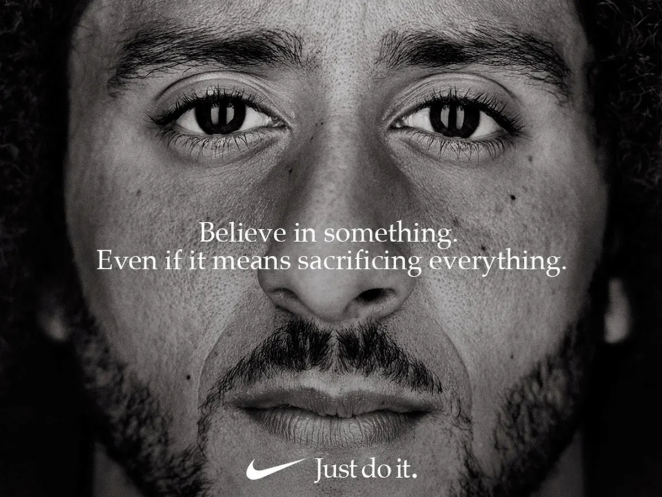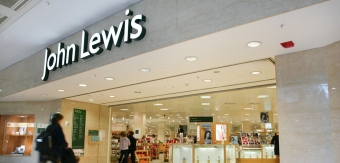We live in a dangerously divided world where politics, branding, and capitalism continue to collide. Fueled by social media’s immediacy, vast reach, and influence, and a society stoked by activism, we’ve never been more socially conscious, engaged, and divided. People are angry at their perception of injustice in the world and with each other.
Whether brands should stay silent or speak up about delicate and divisive social or political issues is a complex question with no easy answer. There are inherent dangers in taking a position that risks alienating a brand’s audience. And in a world of dramatically conflicting opinions and different versions of the truth, who’s to say what’s right?
And therein lies the problem
What complicates this decision path is that what is true and right depends on who you ask. Misinformation and disinformation is rampant. There is no middle ground. Conspiracy theories are everywhere. All sides deny and accuse the other. What brand wants to engage in this?
Staying silent is also risky. Consumers today demand authenticity and transparency and want brands to take a position. They want brands to share their values and positively impact the world. A 2020 study by PR Daily found that 83% of millennials want brands to align with their values, and 76% want CEOs to speak out on issues they care about.
A 2022 study by MNI Targeted Media found that 40% of Gen Z consumers feel strongly about affordable education, affordable health care, gun rights/control, racial equality, and climate change. All this has led to the rise of purpose and cause as brand positioning drivers. But be careful. Consumers are highly skeptical of brands appearing “woke” without taking any meaningful action. You will be called out. And you could be crushed.
To speak or not to speak? Both can impact performance
Okay, we can all probably get behind climate change (ah… well, most of us anyway). But add hugely personal and massively divisive issues like war, religion, abortion, and immigration, aggravated by the gigantic chasm between the political parties with diametrically opposed worldviews and an impending repeat nightmare election, and who knows what the hell to say that won’t piss somebody off?
Moreover, what can companies say that won’t risk impacting a company’s fiduciary responsibility to shareholders? Because if you piss off the wrong people, business will be affected.
Take Pepsi’s 2017 commercial that featured Kendall Jenner joining a protest and handing a police officer a can of Pepsi. The ad was widely criticized for being tone-deaf and trivializing the Black Lives Matter movement. C’mon now, who would ever believe a can of Pepsi can solve racial injustice? Talk about being out of touch and a bit narcissistic. Pepsi ultimately pulled the ad and apologized.
Gillette released a commercial in 2019 that challenged traditional notions of masculinity and encouraged men to be “the best a man can be.” Some praised the ad for its positive message, but others also criticized it for being anti-male and for promoting toxic masculinity. Gillette sales declined in the wake of the controversy.
 Nike released a commercial in 2018 featuring Colin Kaepernick, the former NFL quarterback who was blacklisted by the league for kneeling during the national anthem to protest police brutality. Some praised the ad for its support of Kaepernick and its message of social justice, but others also criticized it for being unpatriotic and dividing the country. Nike's stock price reportedly fell by 3% in the wake of the controversy.
Nike released a commercial in 2018 featuring Colin Kaepernick, the former NFL quarterback who was blacklisted by the league for kneeling during the national anthem to protest police brutality. Some praised the ad for its support of Kaepernick and its message of social justice, but others also criticized it for being unpatriotic and dividing the country. Nike's stock price reportedly fell by 3% in the wake of the controversy.
- While Nike did take a hit, it was temporary. Their situation was different. While controversial, the Kaepernick ad was true to their long-held brand values. Their brand position has been consistent for decades, building one of the most enduring brands in the world. They stood by their position, and their stance benefited the brand in the long run. Nike ultimately generated an estimated $43M in media buzz. But that takes a brand with significant and unassailable equity and guts. Very few brands can get away with that.
Silence can be dangerous, too. Pick your poison. Disney has faced backlash in recent years for its support of LGBTQ+ rights and for its opposition to Florida's "Don't Say Gay" bill. In 2022, Disney CEO Bob Chapek initially refused to speak out against the bill, but he later reversed his position after facing pressure from angry employees and customers. He also got fired after quickly garnering criticism for subsequent public relations missteps, political controversy, and unpopular business decisions—which, combined with Disney's poor earnings, pushed the board to replace him.
Bud Light is another example of a company producing a tone-deaf ad that alienated its core customer base. In April 2023, Bud Light partnered with transgender TikTok influencer Dylan Mulvaney to promote Bud Light. The problem? Bud Light has always been popular in the American South – among conservatives, blue collars, and right-wingers who would predictably react adversely to Mulvaney. And pissed off they were.
This was just the start of Bud Light’s troubles. According to CBS, sales of Bud Light have been down 23% compared to last year, and its stock was downgraded. According to Newsweek, Anheuser-Busch’s stock value dropped by as much as $4 billion since the controversy started.
Taking a position is a strategic decision before it’s a creative one
When thinking about taking a stand, there are many factors to consider, including a brand's values, its target audience, and the specific issue at hand. Importantly, deciding how to respond to social or political issues and whether or not you should is a strategic business question first.
Like all strategic decisions, it is a value judgment calculated on risk and return. It's a decision that impacts brand equity and goodwill and, as such, will impact financial value and returns. On the flip side, responding with authenticity and respect can be a way to build stronger relationships with customers and increase brand loyalty. But it is a delicate and highly considered decision. If you do go there, how you creatively execute it matters.
Today’s consumers are belief-driven. They embrace brands that improve the world along with making a profit. The 2018 Edelman Earned Brand study reports that this is a worldwide phenomenon. People are increasingly looking to brands rather than to governments to solve problems.
The Edelman study found that values-based communication is as effective as product-based communication in driving purchase intent, “and a communication focused on a brand’s stand has an even greater effect on a consumer’s intent to advocate for the brand than one focused on product features.”1 Translation: consumers will be loyal and advocate for your brand if they believe in what you believe. So do your research, know your audience, and prepare for the haters ‘cause there will be some.
Given today’s social/political climate and the mindset of today’s social media-influenced consumers, you’ll likely need to take a stand on something eventually. (Edelman’s 2023 Trust Index suggests your employees will demand as much.)
So, if you are going to go there, here’s a few guardrails:
- Before you decide anything, ensure your company’s core values are clearly defined.
- Be sure your chosen cause is aligned with and supports your brand’s positioning and that you can sustain meaningful involvement. If your audience is deeply divided on the issue, stay away.
- Make this decision in a calculated, studied fashion. Do not be impulsive. Align it with your brand’s core positioning strategy.
- Whatever decision you make, be authentic. If your brand doesn't have a history of activism around a chosen issue, it's probably best to stay out of the conversation.
- Be respectful of all views, with no inflammatory language or sweeping generalizations.
- Be transparent and open to hearing feedback. Anticipate it won’t always be good.
- Be specific, not vague. Have substantive action planned when taking a position.
- Avoid topics that are dangerously divisive or controversial.
- Before proceeding, rigorously assess the risk/reward of taking the position.
- Can your brand survive a backlash? Role play and anticipate damage control.
- Decide if your brand is credibly positioned to speak to the issue. If not, don’t speak.
- Find safer ground and focus on promoting unity and inclusion.
- Respect both sides of an issue. Divergent perspectives often have validity.
- Be sure there is action supporting your words. Words with no aligned behavior is death. As they say, “Go woke, go broke.”
- Test your messaging with neutral third parties, gather opinions, and listen to responses.
- Critically, if you take a position, stick to it. If you pivot from one cause or purpose to another, you will denigrate the brand and kill loyalty and any earned equity.
Taking a position on anything these days can be a bit like walking through a minefield. So maybe what’s best is to do what my Mom always said, “If you can’t say something nice, don’t say anything at all.”
And on some occasions, unless you are Patagonia, Nike, Dove, or Ben & Jerry’s, silence is probably golden.
Otherwise, tread carefully.
About the Author: Lysle C. Wickersham leverages his background in advertising/branding and investment banking as Founder and Principal Consultant at BRANDThink, LLC, a strategic brand consulting firm supporting general businesses, agencies, and PE & VC in amplifying value creation and building brand strategies that build high-performing and high-value businesses.






